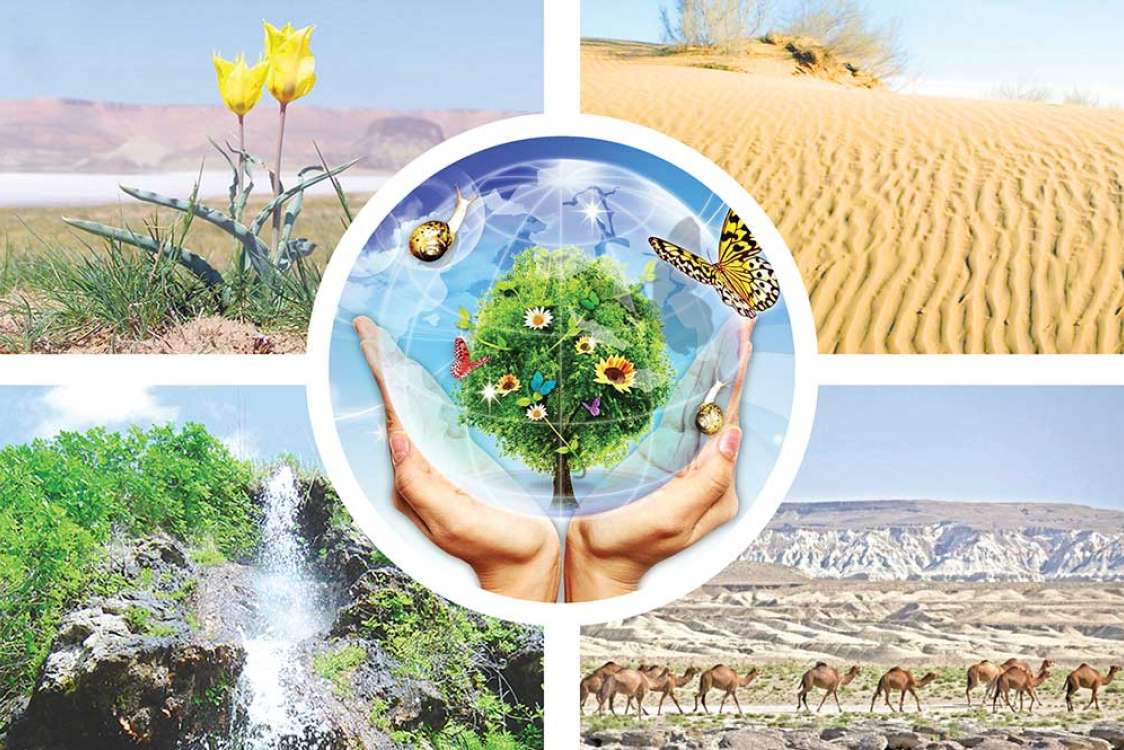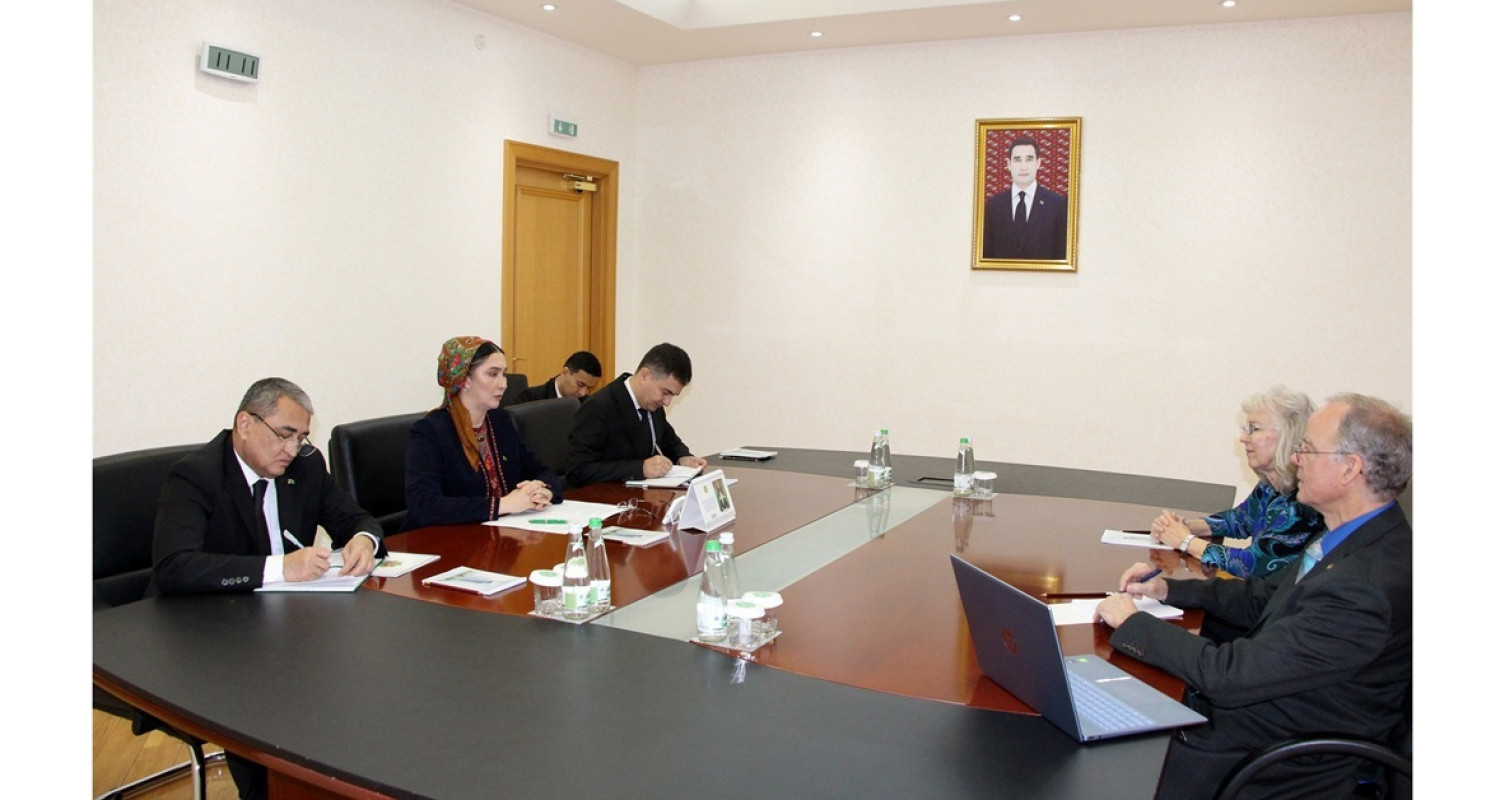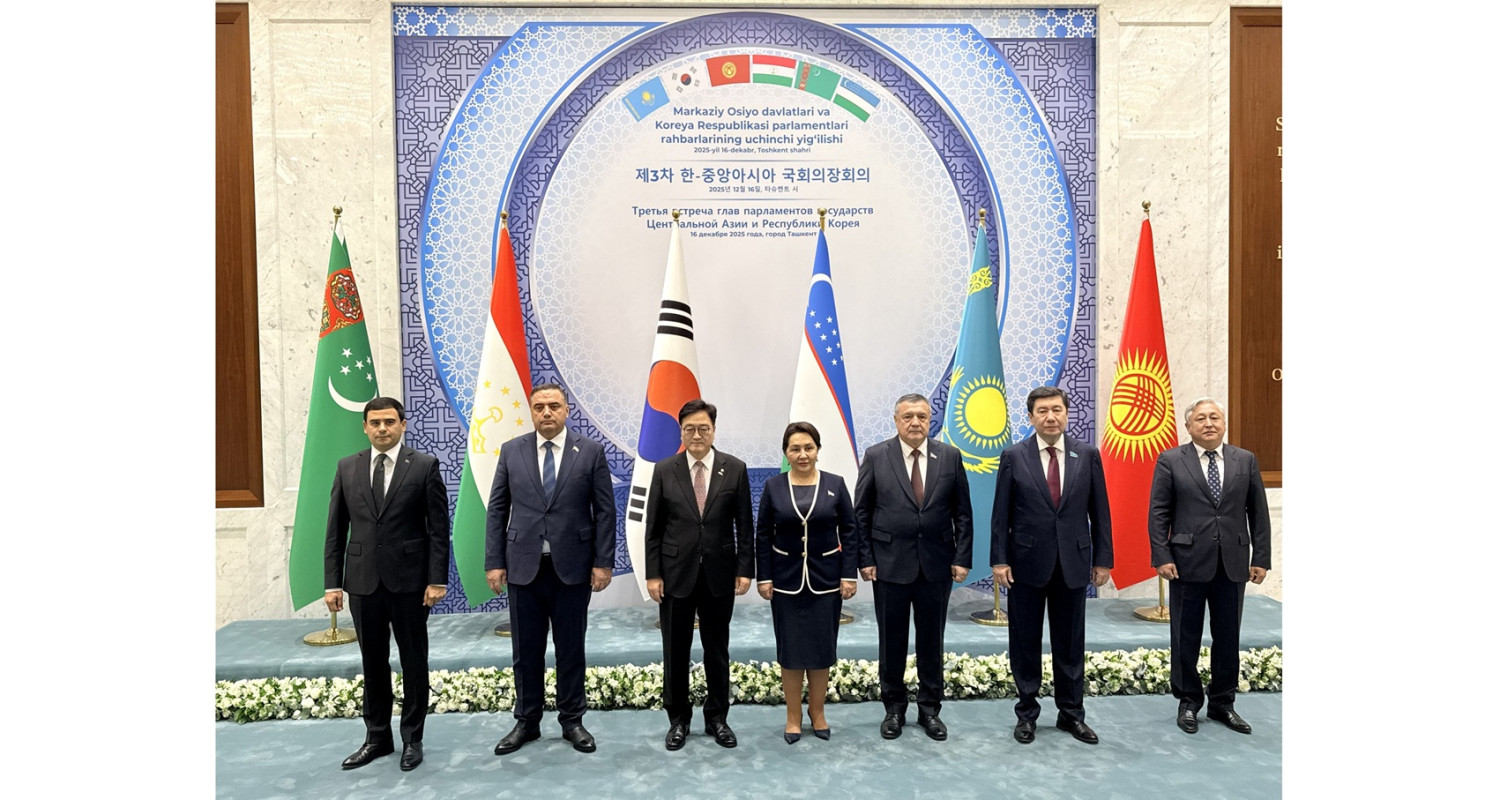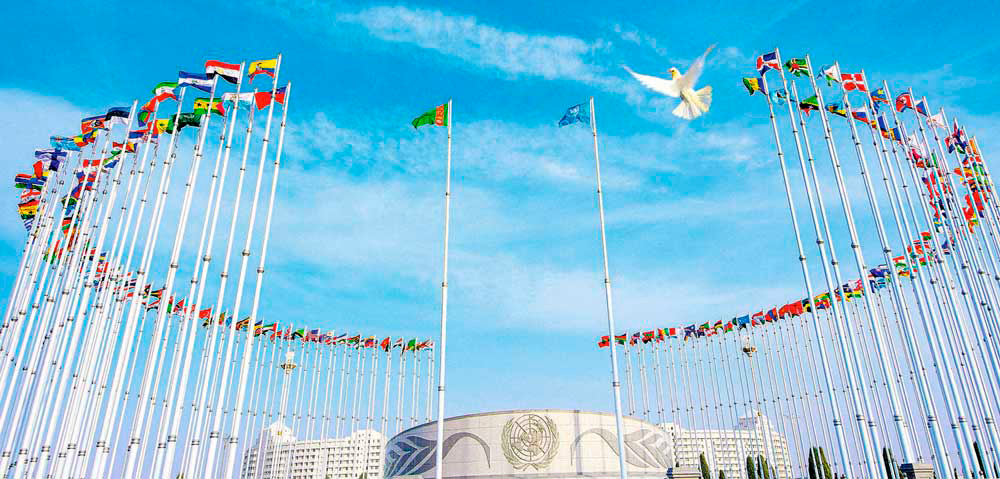This month has been rich in regional environmental meetings. A recent meeting of ministers of nature protection, held in Ashgabat, revealed regional factors related to climate change and environmental safety, and a commonality of approaches in understanding their significance. During the high-level meeting, it was said that from time immemorial the countries and peoples of Central Asia have been united by strong cultural and historical ties and a common traditional way of life. Currently, this is manifested in the similarity of views and positions on various issues relating to the development of the region and its interaction with the rest of the world. This helps the five states jointly solve problems, including those that relate to such an important area of human life as the preservation of the natural environment and rational use of natural resources. This meeting also outlined new vectors of interaction with the OSCE that are useful for the five countries.
Regarding the priorities of our country in developing regional interaction with the fraternal countries of Central Asia in the foreseeable climate future, the moderator of the meeting, Minister of Environmental Protection of Turkmenistan Ch. Babaniyazov, emphasized: «Turkmenistan is an active participant in the international climate agenda, is a party to the Framework Convention on Climate Change and the Paris Agreement on climate, within the framework of which in 2022, the Nationally Determined Contribution of Turkmenistan, which is currently being implemented, was approved by a Presidential Decree (this document will be updated later). According to the new edition of the National Strategy of Turkmenistan on climate change, work is being carried out to consistently reduce greenhouse gas emissions by modernizing facilities in sectors of the national economy, introducing innovative low-waste, energy-efficient and water-saving technologies into production».
This was followed by consultations of managers, scientists, climatologists and ecologists in the capital of Uzbekistan, Tashkent, where a delegation of our country was sent, consisting of specialists from the Ministry of Finance and Economy of Turkmenistan, the Ministry of Environmental Protection of the country, and experts in the field of desert science. The exchange of views took place in the format of a regional seminar with an emphasis on curbing the processes of desertification, salinization and land degradation as a result of natural and anthropogenic processes, as well as countering sand and dust storms that affect agricultural production in vast areas of the Aral Sea basin. The Tashkent meeting was held with the support of the global mechanism of the UN Convention to Combat Desertification in partnership with the Regional Environmental Centre and the International Centre for Agricultural Research in Arid Regions, with the participation of the International Rice Research Institute, the World Meteorological Organization, the Asian Forestry Cooperation Organization, etc.
The importance of strengthening regional interaction in the environmental sphere was commented on by the director of NIPRZHM, candidate of biological sciences P. Kepbanov, who emphasized: «Central Asia is a vast region where environmental conditions vary greatly: from northern territories with large grain potential to the hotter and drier south, where agriculture depends on irrigation as well as high altitude. Here, desert landscapes are the dominant type of ecosystems and occupy more than 80% of the region's territory, which makes it vulnerable to sand and dust storms against the backdrop of climate aridization. This, in turn, affects natural factors, shifts the timing of weather periods, and makes adjustments to land and water use practices. This multifaceted area was considered by government officials, natural scientists, climatologists, and ecologists, and became a priority on the agenda of the five-party meeting. Those gathered got acquainted with weather forecasters' reports that record precipitation, droughts, heat waves, or frost waves that contribute to desertification and land degradation, and talked about anthropogenic factors, agricultural productivity, and the quality of surface waters. Alternatives to traditional energy supply, the applicability of solar panels, scientifically based approaches to pasture rotation, and the preservation of a healthy environment were discussed - the basis for maintaining regional stability».
A participant in the seminar, head of the department of NIPRZHM B. Durdyyev, noted that one of the issues was the restoration of desert ecosystems, conservation of biodiversity in the face of climate change, respect for the environment, reasonable use of natural resources, and such experience and various practices in the countries of the region, including in Turkmenistan, a lot has been accumulated. Time-tested methods remain in active use. People want and believe in maintaining a favorable environmental situation in the future and building economical, environmentally friendly and energy-efficient management of the land, maintaining the agro-industrial complex at the current high level of development. Maintaining current positions gives farmers in the region the opportunity today to plan stable agricultural production, protect nature, and support its self-renewal. The exchange of experience was useful for all participants in the meeting, as was familiarization with current regional strategies and activities of intrastate status, the concrete, and not on paper, effect of their implementation, and identifying existing gaps.
During the Tashkent meeting of ecologists, the so-called «global initiative for peaceful forest management» was proposed, its essence, capabilities and expected efficiency for the region. One of the planned measures within the framework of this platform may be the restoration of transboundary natural resources, which meets the interests and demands of the population living in such territories. Considerable time was devoted to the exchange of views on an integrated approach to the conservation of land resources and biodiversity. A popular theme was the relationship between climate and investment in transforming the agri-food system to strengthen and strengthen it. Thanks to group work, representatives of five countries drew up concepts for regional cross-border cooperation projects, taking into account national and regional priorities. The UN international bodies present said that the results of the workshop will be studied by the Secretariat of the Convention to Combat Desertification (UNCCD), which will engage partners to formulate a more detailed proposal for transboundary cooperation, including assessing the feasibility and financing of projects. Colleagues from five countries held consultations on an integrated approach to exploitation and reclamation, that is, restoration of degraded lands. Arable lands and pastures are our breadbasket, the basis of well-being, and the most important seminar participants found it important to pay attention to soil resources, the environmental friendliness of their use, irrigation and fertilization to maintain the required level of fertility, as well as crop rotation, as indicated by President Serdar Berdimuhamedov.
Today, the demand for detailed, high-resolution land resource information is growing rapidly in the region, including in response to efforts to mitigate the effects of sand and dust storms. Accurate mapping and monitoring of land resources, soil properties and composition using new technologies is an important basis for decision-making in land and water use planning. In addition, panels for operational interpretation of remote sensing images of the Earth’s surface can include a map of the sources of such natural factors, which in turn works for an early warning system, risk assessment, etc. Representatives of the five Central Asian states indicated that such an environmental panel could be united in common interests, serve science and production equally, and use advanced technologies accumulated by the international community in UN structures. The spread of sand and dust in the air is a problem that does not recognize state borders, said the participants of the Tashkent seminar, and here regional cooperation, policy coordination and joint actions are the need of the day. The speakers presented the success of projects that are being implemented in five countries to curb desertification and the consequences of climate change; other documents that have already been developed and are awaiting their specific implementation, including within the framework of IFAS, were proposed for discussion.








